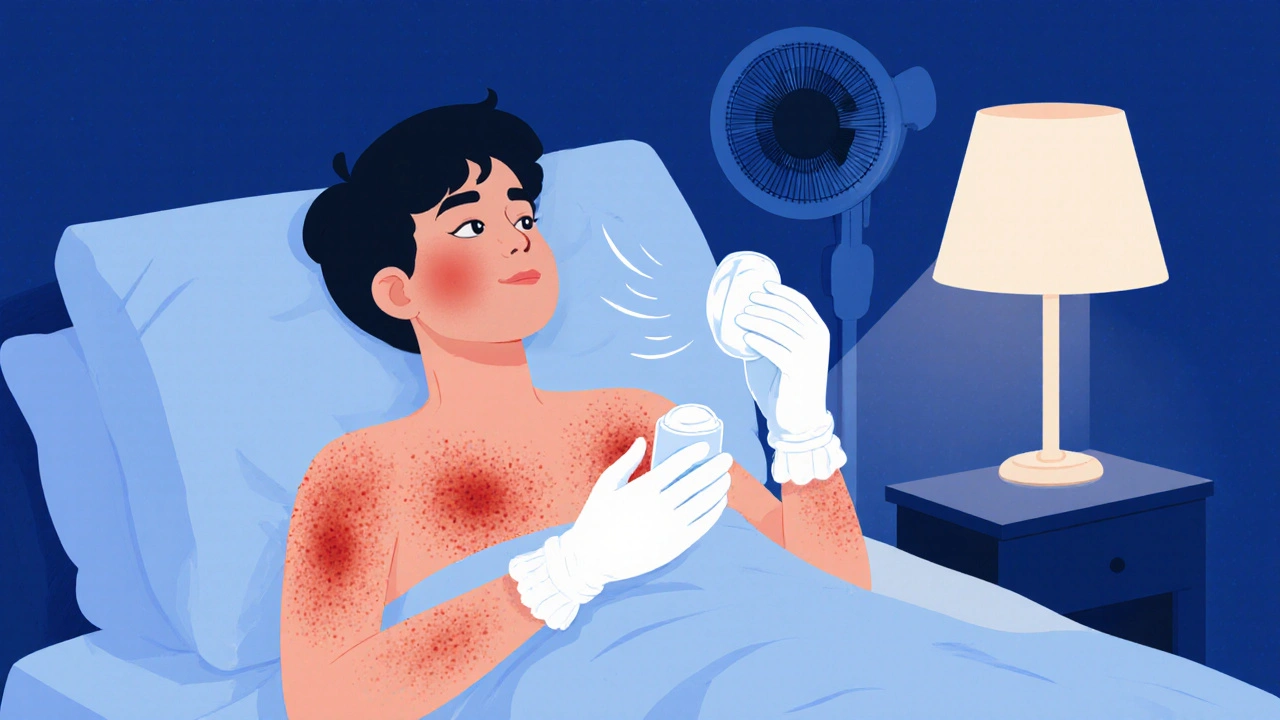Psoriasis and Insomnia: How Skin Condition Affects Sleep and What to Do
When you have psoriasis, a chronic autoimmune skin condition that causes red, scaly patches and intense itching. It’s not just a skin problem—it’s a sleep killer. Many people with psoriasis struggle with insomnia, the inability to fall or stay asleep despite having the chance. This isn’t coincidence. The constant itching, pain, and discomfort from flare-ups make it nearly impossible to relax at night. And when you’re sleep-deprived, your immune system gets more stressed, which can make psoriasis worse—creating a cycle that’s hard to break.
It’s not just the physical symptoms. The emotional toll of visible skin plaques can lead to anxiety and depression, both of which are major contributors to poor sleep. Studies show people with moderate to severe psoriasis are up to three times more likely to suffer from insomnia than those without it. The problem gets worse at night because body temperature rises, skin dries out, and there’s nothing to distract you from the itch. Even scratching in your sleep can lead to open sores, more inflammation, and more pain—making sleep even harder to come by.
Managing this link isn’t about fixing one thing at a time. You need to tackle both the skin and the sleep together. Some people find relief with topical treatments that reduce itching before bed. Others benefit from cool, humidified air, cotton pajamas, or even weighted blankets to reduce the urge to scratch. Medications that help with psoriasis, like biologics or phototherapy, can also improve sleep over time. And if anxiety keeps you awake, simple breathing exercises or short-term use of sleep aids under a doctor’s care can help reset your rhythm.
What you’ll find below are real, practical guides from people who’ve been there. From how certain medications affect sleep to natural ways to calm inflamed skin at night, these posts give you the tools to break the psoriasis-insomnia loop—not just theory, but what actually works in daily life.
